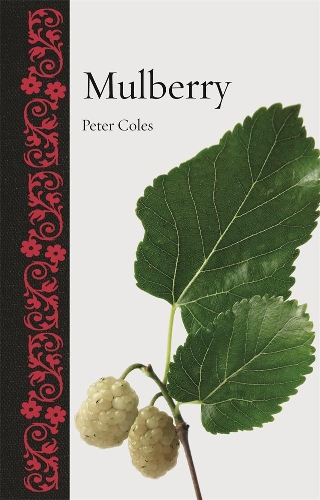
Mulberry
(Hardback)
Publishing Details
Mulberry
By (Author) Peter Coles
Reaktion Books
Reaktion Books
12th November 2019
11th November 2019
United Kingdom
Classifications
General
Non Fiction
Social and cultural history
634.38
Physical Properties
Hardback
264
Width 138mm, Height 216mm
Description
Since Antiquity few trees have had a greater impact on the world's culture and economy than the mulberry. The sole food of the silkworm, the leaves of the mulberry brought prosperity not only to ancient China, but to all nations that learned the art of silk production. Mulberry bark was used to make the first paper and the succulent, blood-red fruit of the Black Mulberry has inspired poets from Ovid to Shakespeare. The medicinal properties of all parts of the tree have been known for millennia, making it a tree of choice for medieval monastery gardens, while its anti-diabetic effects are opening exciting avenues of research today.
This sumptuously illustrated book tells the remarkable story of the mulberry tree and its migrations from China and Central Asia to almost every continent of the globe. It will appeal to all who wish to know more of the rich history of this emblematic tree.
Reviews
"Mulberry is another welcome newcomer for the Botanical series. . . . These, and other aspects--utilitarian, gastronomic, artistic, horticultural--are all fascinatingly pondered within the book's beautifully-illustrated and well-indexed pages."-- "Hortus"
"[Coming] from a unique and considerable amount of both primary and secondary research . . . [Mulberry] is an incredibly comprehensive monograph or study. . . . This is a book which succeeds on every level, being accessible and also sophisticated."--Stephen J. Bowe, author of Mulberry: The Material Culture of Mulberry Trees
"Abundantly illustrated, and well-written. It's a story that's told well, and contains many good yarns. And. since author Coles is cofounder and editor of Morus Londinium--a website devoted to unravelling London's mulberry tree heritage--this is a book that's been written by an obvious enthusiast for its subject. . . . The back cover of Mulberry states, 'Since antiquity few trees have had a greater impact on the world's culture and economy than the mulberry.' That is a bold claim. Whether it is justified is always going to be questioned. But, Coles certainly does his best to substantiate that assertion. You are most cordially invited to read Mulberry and form your own view . . . "-- "Botany One"
"Mulberry, a book celebrating the marvelous tree, goes beyond its ancient links to silk production to explore its role in everything from the oldest banknotes to modern drugs. . . . In the right hands, book series can be very satisfying. Reaktion Books has developed several over recent years. One of these is a delightful series called Botanical that aims to integrate the social, biological and historical contexts of a plant, tree or flower."--Adrian Barnett "New Scientist"
Author Bio
Peter Coles is a Visiting Fellow at the Centre for Urban and Community Research, Goldsmiths, University of London and is a freelance science writer, fine art photographer and translator.
